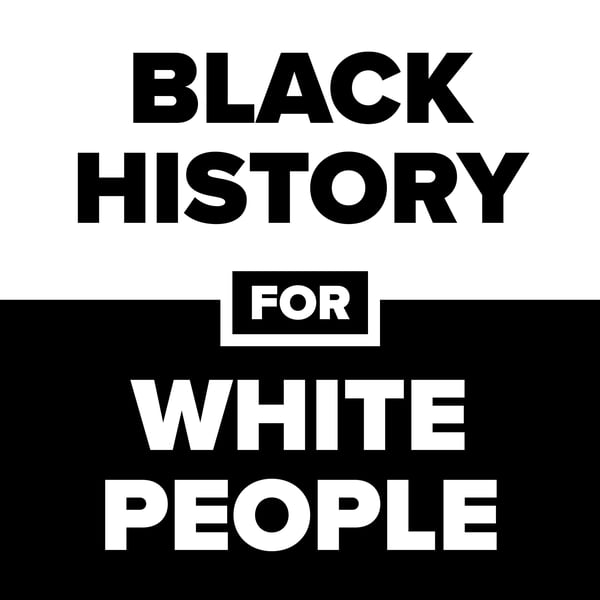George Floyd - Part 2
Black History for White People
Black History for White People
3.6 • 719 Ratings
🗓️ 19 May 2023
⏱️ 36 minutes
🧾️ Download transcript
Summary
In this eye-opening episode, we journey through George Floyd's life and unveil his struggle with drug addiction and the systemic forces that criminalized him for self-medicating. We expose the corruption within the criminal justice system and private prisons, and delve into Derek Chauvin's chilling history of brutality. As we examine the systemic roots of Floyd's life and the dire need for change in policing, we emphasize the importance of becoming our own news source and seeking the truth in cases like George Floyd's. Join us in advocating for change in the systems that perpetuate racial injustice.
Visit us at blackhistoryforwhitepeople.com.
$5/month supports us at patreon.com/blackhistoryforwhitepeople.
Check us out on Twitter @BHforWP and Instagram @BlackHistoryForWhitePeople or feel free to email us at [email protected].
Support this podcast at — https://redcircle.com/black-history-for-white-people/donations
Advertising Inquiries: https://redcircle.com/brands
Privacy & Opt-Out: https://redcircle.com/privacy
Transcript
Click on a timestamp to play from that location
| 0:00.0 | I don't know what most white people in this country feel, but I can only include what they feel from the state of their institutions. |
| 0:12.0 | Now, this is the evidence. You want me to make an act of faith risking myself, my wife, my woman, my sister, my children, on some idealism which you assure me |
| 0:23.1 | in America, which I have never seen. This is part two of George Floyd. If you did not listen |
| 0:30.9 | to part one, I would suggest going back and listening to that episode, we released it two weeks |
| 0:36.2 | ago. Check it out. It'll give you a lot of |
| 0:38.4 | context for what we're talking about today. And so yeah, take it away, Garen. What are we going to talk |
| 0:43.0 | about? So if I were to summarize the last episode, it would be with lyrics that Floyd wrote to a rap song. |
| 0:50.2 | He said, loaded, loaded with potential, but I'm still going wrong. And we talked last time about how he had so much potential, and yet life kept leading him |
| 0:59.8 | down this struggle, almost like the system was designed to lead him there. |
| 1:05.0 | And that's where we pick up this week. |
| 1:07.2 | Floyd in that place fought continually to try to get his life back together. He struggled with |
| 1:12.4 | drug addiction. And this is something maybe just to throw out real quick. A lot of white people |
| 1:18.5 | have access to doctors and medicine to help with anxiety and depression and claustrophobia and the very conditions that George Floyd |
| 1:29.0 | struggled with. And we can get our prescriptions and we can go and get drugs that are legal and |
| 1:35.8 | we can afford and can help us with those ailments. But for a lot of people who are in the black |
| 1:42.7 | community who don't have access to cars, |
| 1:45.5 | much less to appointments with doctors and prescription drugs, |
| 1:51.7 | there is a tendency to self-medicate. |
| 1:55.1 | And that self-medication is through drugs that are illegal and have been criminalized. |
| 2:00.6 | And then the system, rather than |
| 2:02.5 | offering Floyd help, treating his anxiety and depression and claustrophobia, the system |
| 2:07.0 | criminalized him for, and turning to drugs is not good. It's a trap. Drugs are addictive. They're |
... |
Please login to see the full transcript.
Disclaimer: The podcast and artwork embedded on this page are from Black History for White People, and are the property of its owner and not affiliated with or endorsed by Tapesearch.
Generated transcripts are the property of Black History for White People and are distributed freely under the Fair Use doctrine. Transcripts generated by Tapesearch are not guaranteed to be accurate.
Copyright © Tapesearch 2025.

